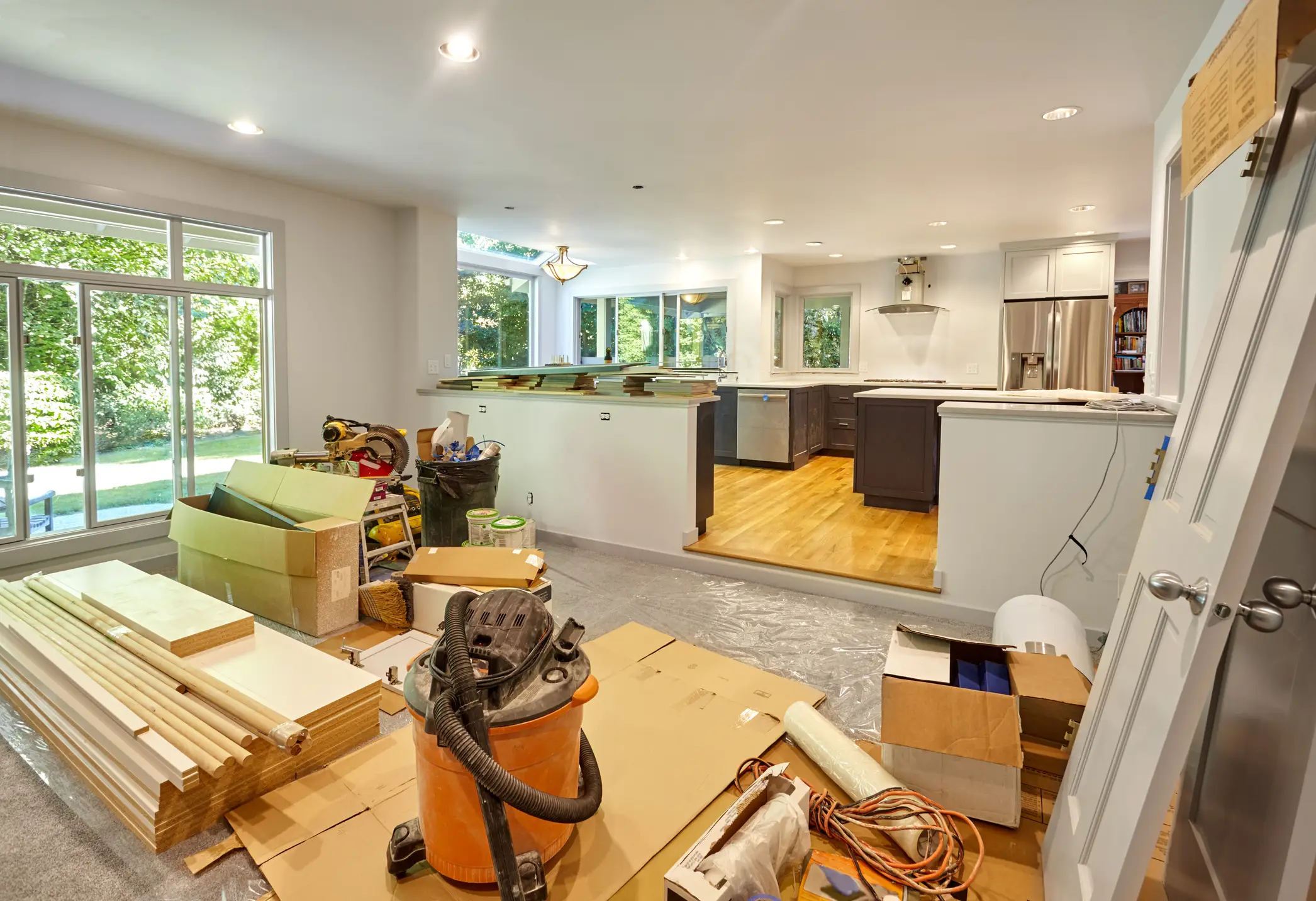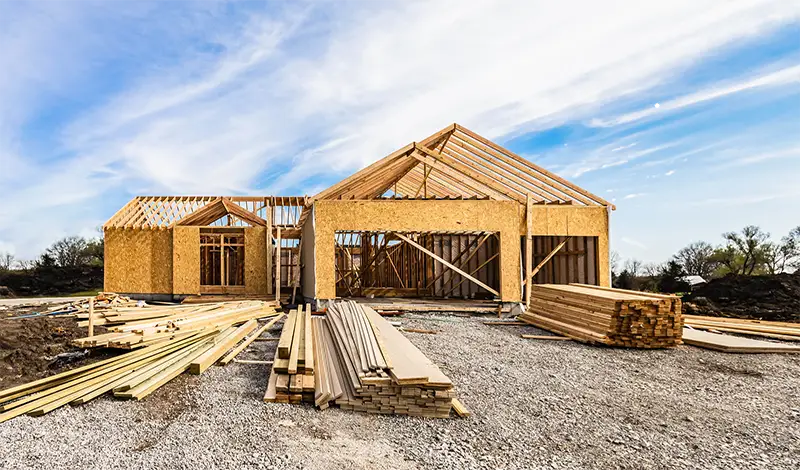Should I Renovate or Buy a Brand New Home?
Published on September 17, 2024 | 7 Minute read

Melanie
Ortiz Reyes
Content Specialist
One of the biggest questions homeowners face when thinking about upgrading their living space is whether to renovate their current home or buy a brand new one. Both options have their merits, but the choice ultimately depends on your personal goals, budget, and how much change you’re looking for. To help you make an informed decision, we’ve outlined the pros and cons of each option.

Pros and Cons of Renovating Your Current Home
Renovating can breathe new life into a home you already love, but it’s not without its challenges. Let’s dive into the pros and cons to see if it’s the right option for you.
Pros of Renovating
1. Familiarity and Emotional Attachment Renovating allows you to stay in a place where you’ve likely created memories. You know your neighborhood, your commute, and your community. If you love where you live but need a refresh, renovation could be the way to go.
2. Customization When you renovate, you can customize the space exactly to your needs. Whether it’s knocking down walls for an open floor plan, upgrading the kitchen, or adding that dream bathroom, renovation gives you control over what stays and what goes.
3. Increase Property Value Thoughtful renovations can significantly increase the value of your home. Improvements like modernized kitchens, updated bathrooms, and additional square footage can offer a solid return on investment (ROI) if you plan to sell down the road.
4. Cost Control Renovating can often be less expensive than buying a new home, especially if you only need to make targeted updates. You can choose projects based on your budget, and you may even be able to finance them through a home equity loan or line of credit.
5. Sustainability Renovating can be more environmentally friendly than building a new home. By reusing materials and making energy-efficient updates, you’re minimizing your environmental impact while also potentially lowering your utility bills.
Cons of Renovating
1. Hidden Costs Renovations can easily go over budget due to unforeseen issues like structural problems, outdated wiring, or plumbing that needs to be replaced. What starts as a small project can snowball into a much larger one.
2. Living in a Construction Zone Depending on the scope of your project, you may have to live in a construction zone for months. This can be inconvenient and stressful, especially if you’re tackling major renovations like kitchen or bathroom remodels.
3. Limited by the Existing Structure While renovation offers customization, you’re still bound by the limitations of the home’s existing structure. You might not be able to achieve the layout you’re dreaming of without significant costs or compromises.
4. Potential Decrease in Property Value Not all renovations add value to a home. Over-customizing or making choices that appeal to a niche market can actually reduce your home’s resale value. If your goal is to sell in the future, you’ll want to carefully consider what renovations make the most sense.

Pros and Cons of Buying a Brand New Home
On the other hand, buying a new home offers the allure of modern design, energy efficiency, and no immediate need for repairs. However, it’s a big decision and comes with its own set of advantages and challenges.
Pros of Buying a Brand New Home
1. Move-In Ready One of the biggest benefits of buying a new home is that it’s move-in ready. You won’t have to worry about repairs, updates, or upgrades right away. Everything from the appliances to the plumbing is brand new, which means fewer headaches in the short term.
2. Modern Layout and Design New homes are typically designed with the modern homeowner in mind. Open floor plans, large master suites, energy-efficient features, and smart home technology are often standard in new builds.
3. Energy Efficiency Today’s new homes are built to be energy efficient, which means lower utility bills and a smaller carbon footprint. New homes often come with energy-efficient windows, insulation, appliances, and heating/cooling systems, which can save you money over time.
4. Low Maintenance With a brand new home, you won’t have to worry about major repairs or maintenance issues for years. Many new homes come with builder warranties that cover repairs for the first few years, giving you peace of mind.
5. Potential Tax Benefits Some new homes come with tax incentives, especially if they meet certain energy-efficient criteria. Additionally, you may be able to take advantage of first-time homebuyer programs if you’re moving from renting to owning.
Cons of Buying a Brand New Home
1. Higher Initial Cost Buying a new home typically comes with a higher price tag than renovating an existing one. You may also have to budget for new furniture, landscaping, or even custom upgrades if the home doesn’t come with the features you want.
2. Limited Location Options New homes are often located in developing neighborhoods, which may be farther from the city center or established amenities. If you love your current location, moving to a new home might mean sacrificing convenience for a longer commute or fewer nearby services.
3. Less Customization While many new homes offer some level of customization during the building process, you may still feel limited in your choices. Buying a new home often means accepting pre-made design decisions unless you go for a fully custom build, which can be costly.
4. Potential for Construction Delays If you’re building a new home, delays are common. Weather issues, labor shortages, or supply chain disruptions can push back your move-in date, causing frustration and uncertainty.
5. Depreciation Risk Similar to buying a new car, a new home may depreciate in value during the first few years. If the housing market fluctuates or if the neighborhood doesn’t develop as expected, you could see a decrease in the value of your home.

Which Option Is Right for You?
Choosing between renovating your current home and buying a brand new one comes down to your personal circumstances and long-term goals. Here are some final considerations to help guide your decision:
- Budget: Do you have the financial flexibility to handle unexpected renovation costs, or would a clear, upfront price for a new home make you feel more comfortable?
- Location: Are you in love with your current neighborhood, or are you open to relocating to a new area for more space or modern amenities?
- Time and Stress: How much time and patience do you have for living through renovations, or would you prefer the ease of moving into a new home that’s ready to go?
- Investment: Are you renovating with the goal of increasing your home’s value, or are you more interested in a home that won’t need major repairs or updates for years to come?
Both renovating and buying a brand new home offer unique benefits and challenges. Renovation can help you stay in a location you love while customizing your space, but it may come with hidden costs and stress. A new home offers modern design and low maintenance but could mean higher initial expenses and less flexibility in location. Ultimately, the decision should align with your lifestyle, finances, and future plans.